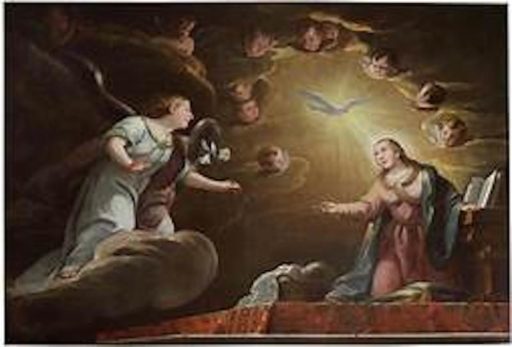I do not know what compelled me to do it—unless it was the usual longing for poetry that quickens in me at the first coming of spring—but this morning I unearthed a document containing the poetry I memorized for my PhD qualifying exam almost fourteen years ago. I took that exam on my twenty-sixth birthday. For the occasion I had memorized about three hundred lines of verse, written by poets ranging chronologically from the Elizabethan Edmund Spenser to the contemporary Alice Oswald. I wasn’t going to be asked to recite all that poetry, but I wanted a repertoire of that size to draw on in the oral examination before a committee of four faculty.
The day of my birthday and the exam, in the second week of May, was cold and damp. I was living in a far northern neighborhood of Chicago and had about a sixteen-mile commute on the bike, mostly along the lakeshore, to get to the University of Chicago. During the hour and more I rode to my exam through fog blowing in from lake Michigan, I recited the poetry I had memorized, recapitulating the history of the art in modern English. The exam went well, even if I only got to trot out about three dozen lines of poetry. It was one of the best birthdays I’ve had.
I had to laugh this morning at some of my choices of verse to memorize. I admire some poetry that most people today do not enjoy. For example, I had at my beck some choice incomprehensibles, scarcely articulable, from Charles Doughty’s The Dawn in Britain. Doughty’s six-volume national epic about the origins of Britain in the time of the Roman Empire is an effort to “purify the language of the tribe” (Mallarmé’s phrase that the High Modernists picked up on) through archaic diction and weird muscular syntax that ought to have put Ezra Pound with his cute little Cantos to shame.
Another unjustly neglected poet I came to love at that time was Robert Bridges, whose career spanned from the earlier Victorian period through the High Modernist moment. Bridges wrote a philosophical, religious, and prosodic masterpiece called The Testament of Beauty (1929), for which he deserves to be remembered rather than for saving Gerard Manley Hopkins’s manuscripts from oblivion. Bridges was as much an innovator as his now more famous poet-friend. Both men reached into the depths of the English tradition, even to the heart of the language, to create their distinctive styles. But one reads Hopkins for passion, a thing much beloved of us moderns; whereas one reads Bridges, I thought this morning, for that old forgotten virtue, equanimity.
There was one poem in my compendium, or a few lines from it anyway, that I had forgotten was there. It is one of two poems called “The Annunciation” by the Scottish poet Edwin Muir. This one appeared in the last book of poetry published in his lifetime, One Foot in Eden (1956). And it so happens that I’m writing this on the Feast of the Annunciation, the day Christians celebrate the angel Gabriel’s announcement to the Blessed Virgin Mary that she will conceive by the Holy Spirit. The poem is twenty-eight lines, rhymed irregularly (there are a few deceptively regular parts) and divided into uneven stanzas. The first four lines are what I memorized for the exam:
The angel and the girl are met. Earth was the only meeting place. For the embodied never yet Travelled beyond the shore of space.
I love the force of these lines, with two successive end-stopped lines, followed by a gentle enjambment. The rhyme scheme does not continue in this pattern and the first stanza breaks after one more line that rhymes with the second line of the next stanza. So while there is a strong music to the poem, it is at the same time halting and deliberately awkward, or hesitant, as we imagine any meeting of divine and human. (It must also be said this is typical of Muir’s poetry.)
But I don’t think I memorized those opening lines chiefly because of their prosody. What would have caught my attention is the emphasis on the earth and embodiment. I am if anything more committed now to these themes than I was as a young graduate student who was increasingly mortified by what seemed the disembodied and even (as I would now say) the anti-incarnational mental acrobatics of contemporary intellectual culture. I was always looking for some green and salvific poetics, and always running up against some abstract ideology.
That hasn’t changed. But on re-reading Muir’s whole poem on this Feast of the Annunciation, I was struck by something that I didn’t openly acknowledge when I first took notice of the poem, perhaps because I knew that, as hard as it is to convince literary academics that they are men and women living on the earth, it is harder still to convince them that they are men and women, or that romantic love between men and women is a good thing. And a moment of romantic love between a man and a woman—or at least between a woman and a male figure—is what Muir’s poem of the Annunciation depicts.
While the destroying minutes flow, Each reflects the other’s face Till heaven in hers and earth in his Shine steady there.
Thus the poem continues, in the vein of Petrarch and Laura, Dante and Beatrice. It is more than a literary trope; it is cosmic symbolism of a kind which I have come to feel desperately needs to be rediscovered and revitalized in the Christian religion, in all religion. Romantic encounter in the cosmos of this poem is not just anthropological but potentially theo-anthropological, pertaining to the human and the divine, joining mundane and transcendent without leaving the earth behind. (One thinks here of the theology and poetics of Charles Williams, which Muir may have known.) Mary’s moment of triumphant humility, openness and love is, if not quite yet her apotheosis (that is solemnized in her other great and ancient Feast, the Assumption), at least a temporal hiatus.
Outside the window footsteps fall Into the ordinary day
For everyone else, life goes on. And it will go on for Mary, too. But, as with anyone newly enamored, at least for a moment the moment is all, there is not and need not be any before or after. What’s amazing about Muir’s poem is that this is a blessed moment for the angel Gabriel as well. I do not know that I would call it passionate. Catholic Christianity (Muir almost converted to Catholicism) is famous for emphasizing passionate spirituality. But to me this is far more a moment of equanimity, and I consider it a valuable contribution to suggest that romantic love can be, as it were, intensely calm—if only for such a moment, a first meeting. Like all fond lovers, Mary and Gabriel are deceived, the moment must end—consider the concluding “as if”!
But through the endless afternoon These neither speak nor movement make, But stare into their deepening trance As if their gaze would never break.
But surely it is the most blessed deception.
Jonathan Geltner lives in Ann Arbor MI with his wife and two sons. His translation of Paul Claudel’s Five Great Odes is available from Angelico Press and a novel, Absolute Music, is forthcoming from Slant. If you enjoy his posts at Close Reading, check out his new Substack, Romance and Apocalypse, for more frequent and in-depth essays on the places where literature and other arts meet religious ideas and experience.





